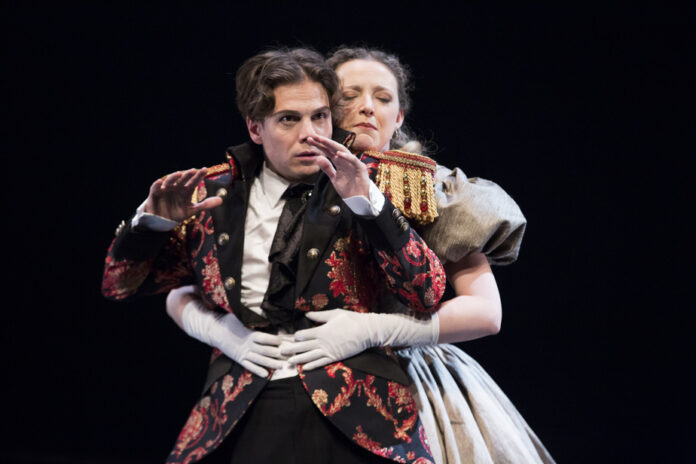From Ludwig II, we remember the madness of grandeur and the magnificent castles in Bavaria. For posterity, he remained this capricious child who refuses the responsibilities of the adult world. In Châteaux du ciel, a play by Marie-Claude Verdier, playing at Théâtre Denise-Pelletier, we discover the hidden face of a king of hearts.
“Life is in the interstices,” says King Ludwig (Ludi II), at the start of the play. We may remember the exploits of historical figures, but the most interesting ones do not always appear in the great book of history.
“We are here in a truth of the heart and not of facts”, warns the author in her word on the program, to answer those who would question her about the historical accuracy of her text. And emotion, there is a lot in this production finely directed by Claude Poissant. The show is also carried by a solid cast and a talented team of designers. We should mention the refined scenography by Odile Gamache; careful lighting by Éric Champoux; and the splendid period costumes of Marc Senécal.
Claude Poissant is undoubtedly the most romantic director in the Quebec theater world. Poissant has already conducted classics by Musset, Hugo and Marivaux, a forerunner of the Romantics in the 18th century. Moreover, we thought of his memorable production of Prince transvestite, by Marivaux, at the TNM in 1992, seeing this fairly contemporary romantic drama, although the action takes place in the second half of the 19th century.
In Castles of the Sky, we follow the life of the king, from his coronation at 18 until his death at 40. His conflicts with his brother; his relationship with his aide-de-camp and lover; his devotion to the composer Richard Wagner; his rejection of the policy of Bismarck, the Prussian leader who wants to annex Bavaria and unify Germany. To the weapons and blood of war, he prefers the art and music of Wagner.
But we are above all in the troubled brain of the king. Disappointed by Wagner’s megalomania and lies, betrayed by his aide-de-camp (excellent Mikhaïl Ahooja), separated from his war-crazed brother (Maxime Genois, heartbreaking when he bears witness to the horror of the battlefields), Ludwig will take refuge in his spleen. By letting men of reason govern in his place. He will therefore plunge into immense loneliness. Like that of Nelligan and all those great misunderstood poets.
Ludwig is defended with enormous intelligence and sensitivity by Dany Boudreault. The actor is transformed on stage from one act to another. He is first of all this extravagant king who wants to begin his reign “on the pedestal of beauty”. Then, a dreamer lost in his realm of fantasy, his world of illusions. And finally, a lonely man, wounded and abandoned. Alas, in the big leagues, ugliness is stronger than beauty.















